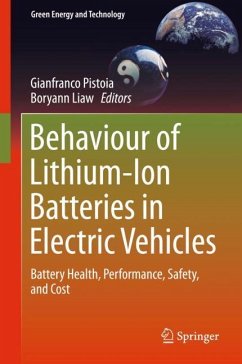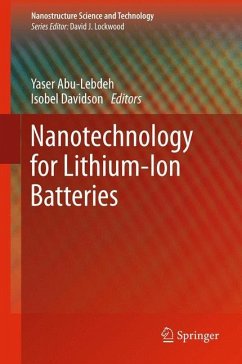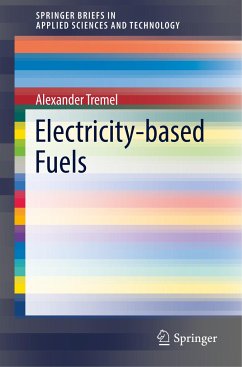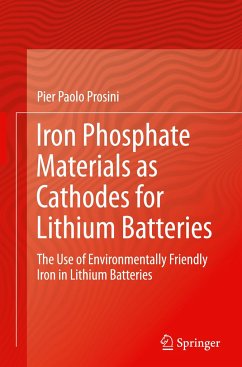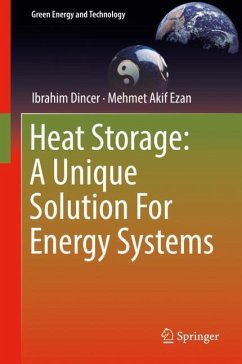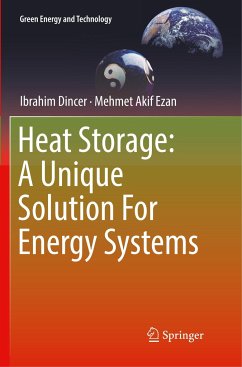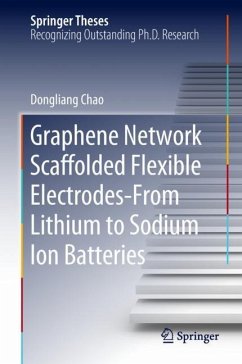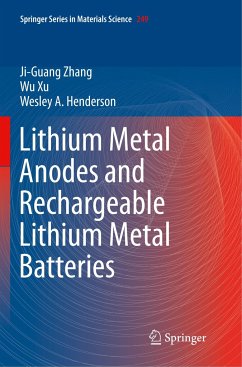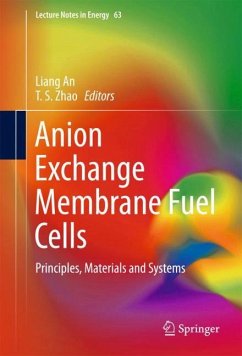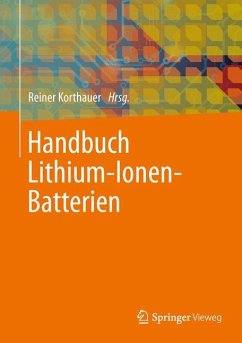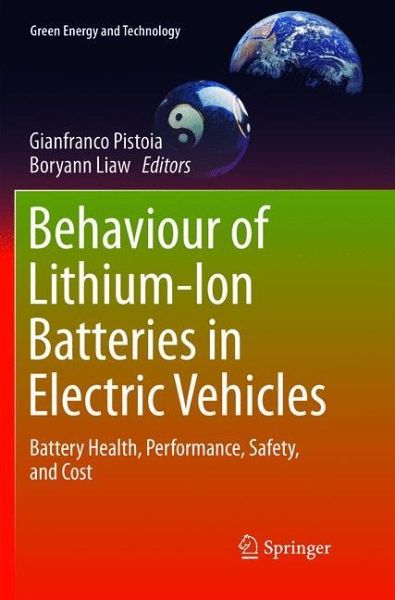
Behaviour of Lithium-Ion Batteries in Electric Vehicles
Battery Health, Performance, Safety, and Cost
Herausgegeben: Pistoia, Gianfranco; Liaw, Boryann
Versandkostenfrei!
Versandfertig in 6-10 Tagen
129,99 €
inkl. MwSt.

PAYBACK Punkte
65 °P sammeln!
This book surveys state-of-the-art research on and developments in lithium-ion batteries for hybrid and electric vehicles. It summarizes their features in terms of performance, cost, service life, management, charging facilities, and safety. Vehicle electrification is now commonly accepted as a means of reducing fossil-fuels consumption and air pollution. At present, every electric vehicle on the road is powered by a lithium-ion battery.Currently, batteries based on lithium-ion technology are ranked first in terms of performance, reliability and safety. Though other systems, e.g., metal-air, l...
This book surveys state-of-the-art research on and developments in lithium-ion batteries for hybrid and electric vehicles. It summarizes their features in terms of performance, cost, service life, management, charging facilities, and safety. Vehicle electrification is now commonly accepted as a means of reducing fossil-fuels consumption and air pollution. At present, every electric vehicle on the road is powered by a lithium-ion battery.
Currently, batteries based on lithium-ion technology are ranked first in terms of performance, reliability and safety. Though other systems, e.g., metal-air, lithium-sulphur, solid state, and aluminium-ion, are now being investigated, the lithium-ion system is likely to dominate for at least the next decade - which is why several manufacturers, e.g., Toyota, Nissan and Tesla, are chiefly focusing on this technology.
Providing comprehensive information on lithium-ion batteries, the book includes contributions by the world's leading experts on Li-ion batteries and vehicles.
Currently, batteries based on lithium-ion technology are ranked first in terms of performance, reliability and safety. Though other systems, e.g., metal-air, lithium-sulphur, solid state, and aluminium-ion, are now being investigated, the lithium-ion system is likely to dominate for at least the next decade - which is why several manufacturers, e.g., Toyota, Nissan and Tesla, are chiefly focusing on this technology.
Providing comprehensive information on lithium-ion batteries, the book includes contributions by the world's leading experts on Li-ion batteries and vehicles.





